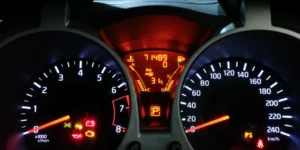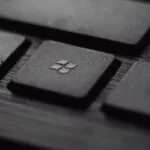Is your Nissan Altima or Frontier showing a check engine light? It’s frightening to see an engine warning light appear on your dashboard, especially when it isn’t before.
Common Reasons for Nissan Engine Lights
Gas Capacity
The gas cap may be missing, broken, or loose. Gas cap problems can lower fuel pressure, allow fuel vapors to escape, and reduce fuel economy.
Failure of the Catalytic Converter
With higher mileage vehicles, your catalytic converter may eventually become clogged with materials. The catalytic converter is an essential part of the emissions system by removing toxic carbon monoxide. Failure or blockage of the catalytic converter could have a severe impact on fuel economy and vehicle performance.
Fouled Spark Plugs and Spark Plug Wires
Spark plugs produce a spark that ignites the air and fuel mixture in the engine, which allows it to start and run. You will eventually need to replace your spark plugs and spark plug wires. Spark plug wires and spark plugs that are defective can reduce fuel economy and performance and even stop your engine from running. People have even bought a remanufactured Nissan engine before thinking the engine had failed because of bad spark plug wires.
Faulty Oxygen Sensor
Your oxygen sensor may need to be replaced due to prolonged exposure to hot exhaust gases. The oxygen sensor provides vital information that the ECU needs to know about the air-fuel mixture. An incorrect oxygen sensor could cause the computer to provide too much fuel or not enough fuel for your vehicle. A low fuel level can lead to engine failure. An engine that has too much fuel could cause excessive smoke and odor.
Faulty Mass Air Flow Sensor
The Mass Air Flow sensor (MAF) can fail if it is exposed to polluted or particle-rich air. The MAF sensor, like the oxygen sensors, measures the air entering the engine. It also helps ensure the correct air-fuel mixture. Failing MAF sensors can lead to engine misfires, which can cause poor fuel economy, performance, or more damage.
What to do When a Nissan Check Engine Light Comes On
We recommend that you visit an authorized service center whenever your Nissan’s check engine light illuminates. Trained technicians will diagnose the problem and make repairs. They are also equipped with the latest diagnostic equipment to quickly diagnose and repair Nissan OBD-II trouble codes.
OBD-II Trouble codes
Follow these steps to retrieve Nissan check engine light codes using an OBD II scanner tool:
- Connect the scan tool to the 16-pin data link connector (DLC), located under the steering column. You may be able to remove the cover from the connector.
- Turn on the ignition.
- To access Diagnostic Trouble Codes (DTC), please refer to the instructions provided by your scanner manufacturer.
If your vehicle experiences a problem, your On-Board Diagnostics system (OBD) will trigger a code that can be used for diagnosing the problem. You can search for common OBD-II trouble codes if you have an OBD-II scanner.
Click here to see a complete list of OBD-II scanner codes.
You can determine the cause of your Nissan’s check engine light problem by looking at the behavior. Here are some examples of real-world situations to help you understand what to do next.
- Only certain conditions will cause the check engine light to come on.
You should be able to see any performance changes in your vehicle if the check engine light comes on intermittently. You should not drive your vehicle for more than a few minutes until you can bring it in for service. You risk your vehicle will stop starting. - The check engine light is always on
The vehicle’s onboard diagnostics system has detected an issue and must be repaired. Even though your vehicle may appear to be in good condition, it is best to have it serviced as soon as you can to avoid any further problems. - Check engine light on.
There is a performance problem. If your vehicle is experiencing a decrease in performance, it may be entering a “limp mode” to avoid further damage. To prevent further damage to your engine, take the vehicle to our service center immediately. - While driving, the check engine light blinks
The light flickering light in the first situation is not to be confused. If your check engine light blinks continuously, it is usually a sign that there is an issue with your vehicle. You should pull over as soon as possible. To be safe, we recommend that you have your vehicle town to our facility if you live far from it.
The bottom line
The check engine light can go on for many reasons. You should bring your vehicle in immediately if the light turns on. Flashing lights are more dangerous. It is possible for a Nissan engine to continue to be driven in this state, which could cause very expensive emission repairs.
Written by Alan Parker








